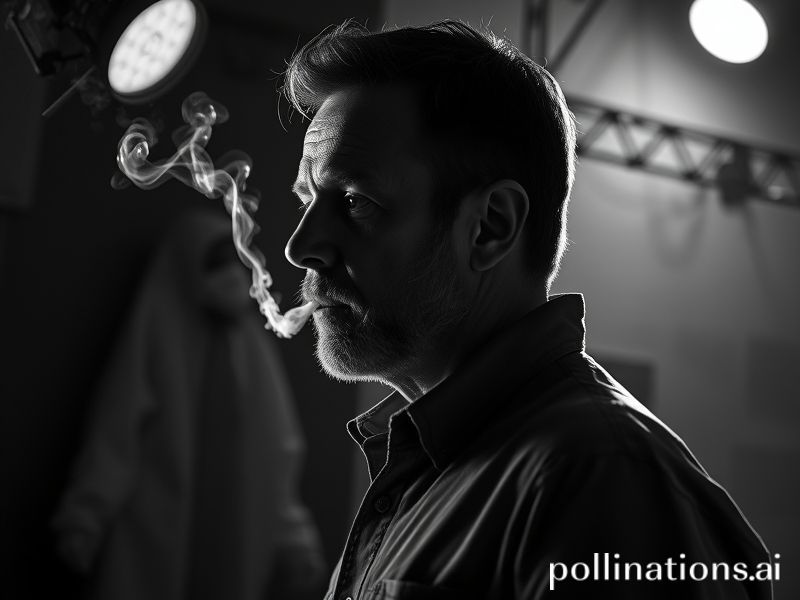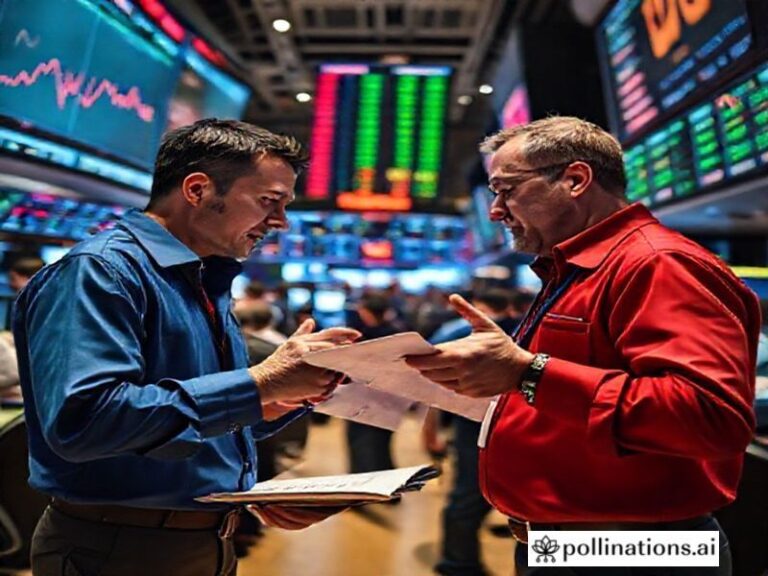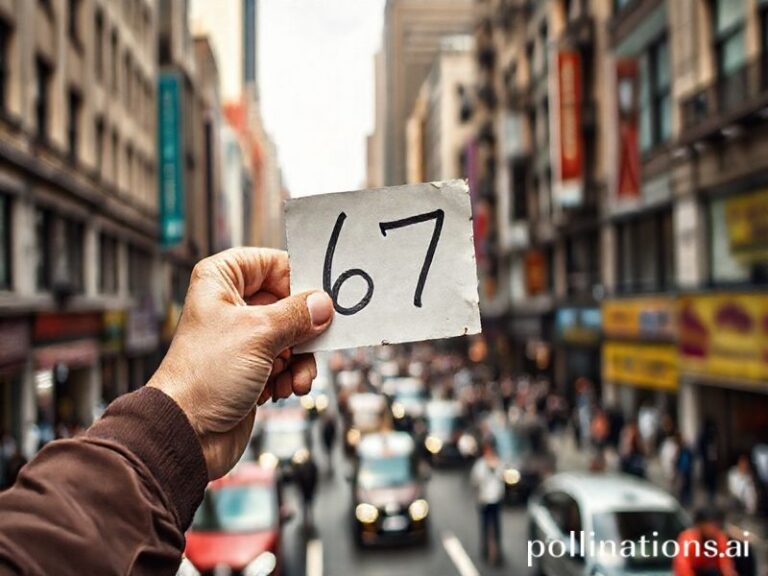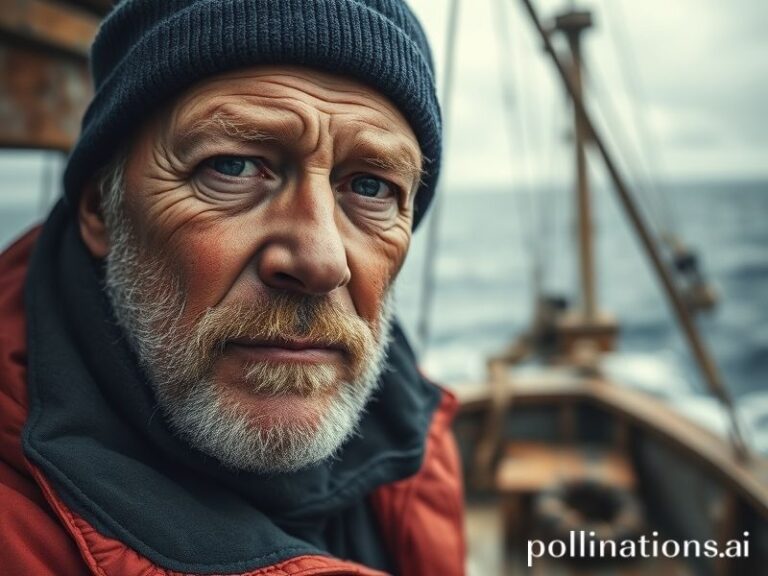Bryan Cranston: America’s Most Diplomatic Drug Dealer—How Heisenberg Became a Global Soft-Power Narcotic
The Meth, the Myth, the Mandarin Collar: Bryan Cranston’s Accidental Diplomacy
Heisenberg may have started as a high-school chemistry teacher in Albuquerque, but somewhere along the way he became a UNESCO-certified export product—served neat, with a dash of existential dread, in 190 countries and counting. Bryan Cranston, the 67-year-old actor who once wore tighty-whities for our sins, now functions as a low-key soft-power apparatus for the United States, a walking, talking rebuttal to every assumption that American culture peaked with the Big Mac.
Consider the evidence: in Seoul, a pop-up bar called “Heisenberg’s Hideout” sells blue rock-candy cocktails to salarymen who have never set foot in the Southwestern desert. In Lagos, bootleg DVDs of Breaking Bad still outsell the local Nollywood hits despite Netflix’s best efforts to geo-block nostalgia. And in Berlin, the Deutsches Theater recently staged an avant-garde adaptation where Walter White is recast as an East German Stasi chemist—proving that German guilt, like crystal meth, can be cooked into ever-purer strains.
Cranston’s global footprint is less a career than a multinational franchise of moral ambiguity. When he slips into his latest role—be it Lyndon B. Johnson on Broadway or the mustache-twirling villain in some forgettable blockbuster—foreign policy think tanks should really update their risk assessments. The man has become a Rorschach test for whatever geopolitical anxiety happens to be trending. Latin American coca farmers watch him and mutter, “At least our product isn’t laced with mid-life crisis.” Meanwhile, European regulators cite Walter White’s hubris as a cautionary tale in antitrust hearings. Somewhere in Brussels, a bureaucrat is drafting a footnote: “See Cranston, B., Season 4, Episode 13, re: monopolistic practices and recreational chemistry.”
Of course, Cranston himself is acutely aware of his accidental ambassadorship. During a 2019 press junket in Tokyo, he gamely donned a Heisenberg pork-pie hat for the cameras, then quietly donated the prop to the city’s Atomic Bomb Museum—because nothing says “never again” like memorabilia from a show about mutually assured self-destruction. One could almost hear the curators sigh: thanks, we already have enough glowing artifacts.
Yet the joke is on us, not him. Cranston’s genius lies in weaponizing American mediocrity until it becomes sublime. He took a character who cooks meth in an RV and turned him into a universal metaphor for late-capitalist desperation—a sort of Milton Friedman fever dream with better lighting. Try explaining that to a Syrian refugee watching bootleg episodes on a cracked phone in Izmir: “Yes, this is what the affluent world fears most—running out of options in a suburb.” The refugee might reasonably conclude that Western horror peaks where most people’s Tuesdays begin.
This is why Cranston matters beyond the Emmys. In an era when American soft power is being strip-mined by Marvel and TikTok, he offers a darker, more honest commodity: the spectacle of a superpower slowly overdosing on its own contradictions. Foreign audiences don’t tune in for the ricin-laced tea; they come for the confirmation that the empire, like Walter’s lung tissue, is riddled with metastatic ambition. Cranston provides that catharsis with the polite menace of a man who knows exactly which fork to use at the G-20 dinner, right before he stabs you with it.
And so the world keeps bingeing. From Jakarta pirate sites to Oslo film clubs, viewers dissect his performances like intelligence analysts poring over satellite photos. State censors in Beijing allow Breaking Bad because it doubles as anti-American propaganda; dissidents in Tehran love it for the same reason. Somewhere, a Swiss customs officer waves through yet another shipment of blue rock candy labeled “theatrical props,” fully aware it will be snorted ironically at a Davos after-party.
In the end, Bryan Cranston isn’t just an actor; he’s a controlled substance—carefully measured, internationally trafficked, and impossible to regulate. Long after the last RV rolls off to the junkyard, his greatest role will remain: the affable tour guide showing humanity exactly how far it’s willing to go for a little security, a little legacy, and a really good montage. The hat may hang in a museum, but the chemistry is still out there, cooking in every cramped apartment where the Wi-Fi flickers and the rent is due.
Welcome to the global supply chain of American dread. Side effects may include introspection, schadenfreude, and an inexplicable craving for breakfast. Proceed at your own moral peril.







